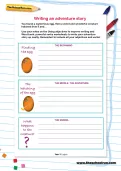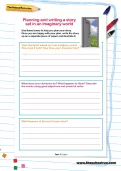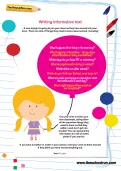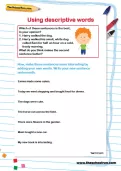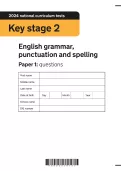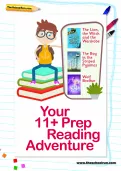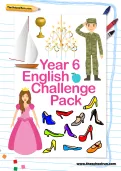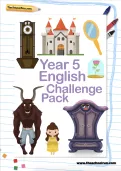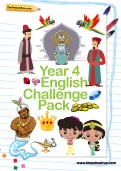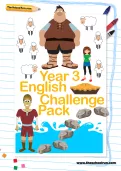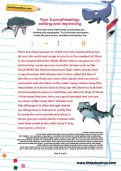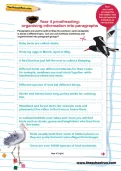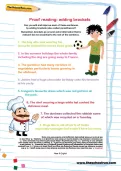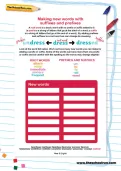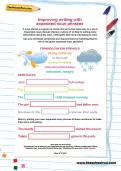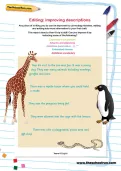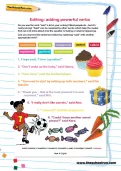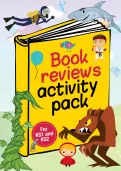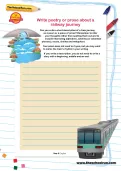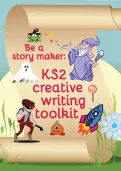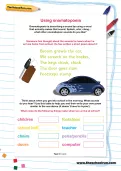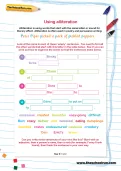Help your child prepare for the Year 6 English SATs, taken at the end of Key Stage 2, with some revision and at-home practice. These KS2 SATs past papers from 2024 are the official past papers from the Department for Education, used in schools.
or
Register to add to your saved resources
Reading is an 11+ exam preparation superpower! Each of the 40 books in our 11+ exam prep reading adventure has been chosen to act as a story-filled portal to new vocabulary and will help your child get to grips with challenging texts the fun way – no flashcards required!
or
Register to add to your saved resources
Already a subscriber? to view this content.
Challenging reading comprehensions and activities for Year 6 readers and writers, designed to stretch your child and offer them the opportunity to explore their year-group topics in greater depth.
or
Register to add to your saved resources
Already a subscriber? to view this content.
Challenging reading comprehensions and activities for Year 5 readers and writers, designed to stretch your child and offer them the opportunity to explore their year-group topics in greater depth.
or
Register to add to your saved resources
Already a subscriber? to view this content.
Challenging reading comprehensions and spelling activities for KS2 (Year 4) readers and writers, designed to stretch your child and offer them the opportunity to explore their year-group topics in greater depth.
or
Register to add to your saved resources
Already a subscriber? to view this content.
Challenging reading comprehensions and activities for Year 3 readers and writers, designed to stretch your child and offer them the opportunity to explore their year-group topics in greater depth.
or
Register to add to your saved resources
Already a subscriber? to view this content.
This information text needs punctuating and dividing into paragraphs. Try to include punctuation marks like semi colons, brackets and dashes, too.
or
Register to add to your saved resources
Already a subscriber? to view this content.
Billy has written a letter to try to persuade his local council that a new park is needed in the area. The language is very informal. Do you think his letter will be taken seriously? Your task is to keep the ideas in the letter the same but rewrite it using the more appropriate formal language that is needed when writing a persuasive letter to someone you don’t know.
or
Register to add to your saved resources
Already a subscriber? to view this content.
Paragraphs are used to split writing into sections; each paragraph is about a different topic. Can you cut out these sentences and organise them into paragraph groups?
or
Register to add to your saved resources
Already a subscriber? to view this content.
Can you edit and improve each of these sentences by adding brackets (also called parentheses)?
or
Register to add to your saved resources
Already a subscriber? to view this content.
Look at the word list. Work out how many new words you can make by adding a prefix or suffix. Some of the words can have more than one prefix or suffix and be careful with the spelling as the words may change slightly!
or
Register to add to your saved resources
Already a subscriber? to view this content.
A noun phrase is a group of words that act in the same way as a noun. Expanded noun phrases improve a piece of writing by adding more information about the noun, making the text more interesting to read. Can you edit these sentences and improve them by matching them to one of the given expanded noun phrases?
or
Register to add to your saved resources
Already a subscriber? to view this content.
Any piece of writing you do can be improved by correcting mistakes, editing and adding lots more information to your first draft. This report about a Year 6 trip is dull! Can you improve it by including some of the following?
or
Register to add to your saved resources
Already a subscriber? to view this content.
Can you improve the sentences below by replacing “said” with another appropriate verb?
or
Register to add to your saved resources
Already a subscriber? to view this content.
Help your child explore books and language with TheSchoolRun's Book reviews activity pack, a huge collection of reading comprehension and creative writing resources for Year 1 to Year 6.
or
Register to add to your saved resources
Already a subscriber? to view this content.
Can you write a short description of a train journey, as a poem or a piece of prose? Remember to infer your thoughts rather than spelling them out and to include interesting adjectives, adverbs (or adverbial phrases), nouns, similes and metaphors.
or
Register to add to your saved resources
Already a subscriber? to view this content.
The boy walked through the field.... a bit of a boring sentence, yes? Can you make it more interesting by first adding an adjective, then a simile and then a metaphor.
or
Register to add to your saved resources
Already a subscriber? to view this content.
Does your child long to write stories? Our KS2 creative writing toolkit is packed with writing prompts to inspire them and gorgeously-illustrated pages to write on.
or
Register to add to your saved resources
Already a subscriber? to view this content.
Onomatopoeia is describing a sound by using a word that actually makes that sound. Splash, whir, clang... what other onomatopeic sounds do you like? Think about when you get into school in the morning. What sounds do you hear? Use this table to help you and then write your own poem similar to the one above (it doesn’t have to rhyme!).
or
Register to add to your saved resources
Already a subscriber? to view this content.
Alliteration is using words that start with the same letter or sound for literary effect. Alliteration is often used in poetry and persuasive writing. Look at the name in each of these ‘empty’ sentences. You need to find all the other words that start with this letter in the table below. See if you can work out how to organise the words so that the sentences make sense.
or
Register to add to your saved resources
Already a subscriber? to view this content.

